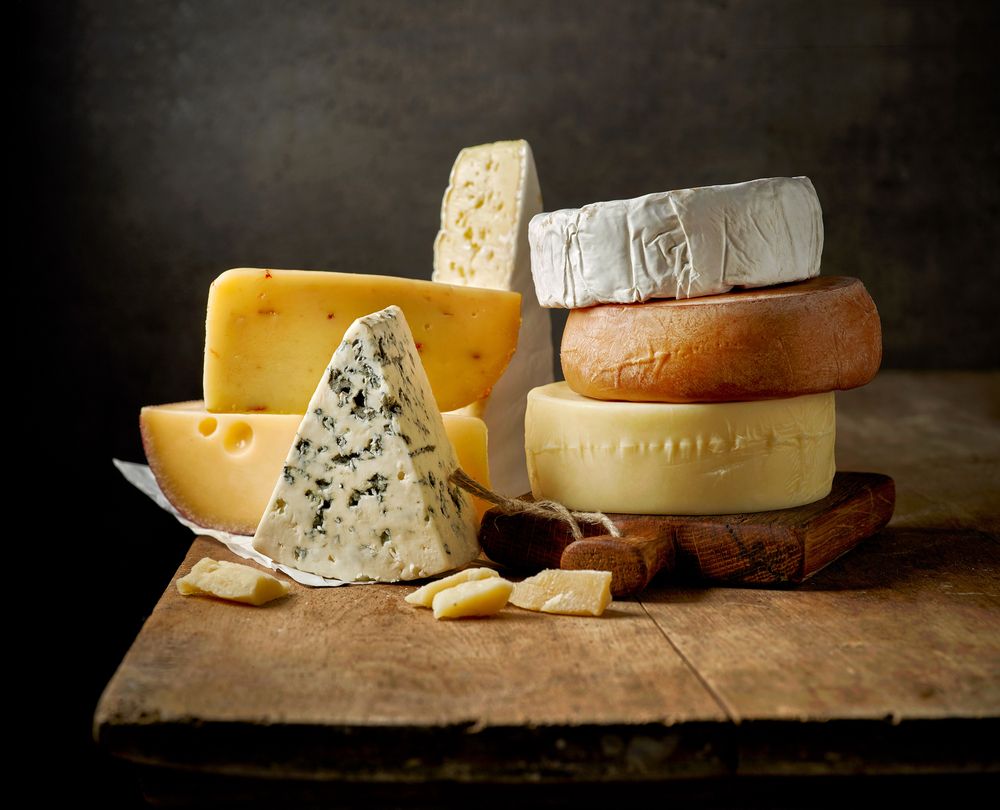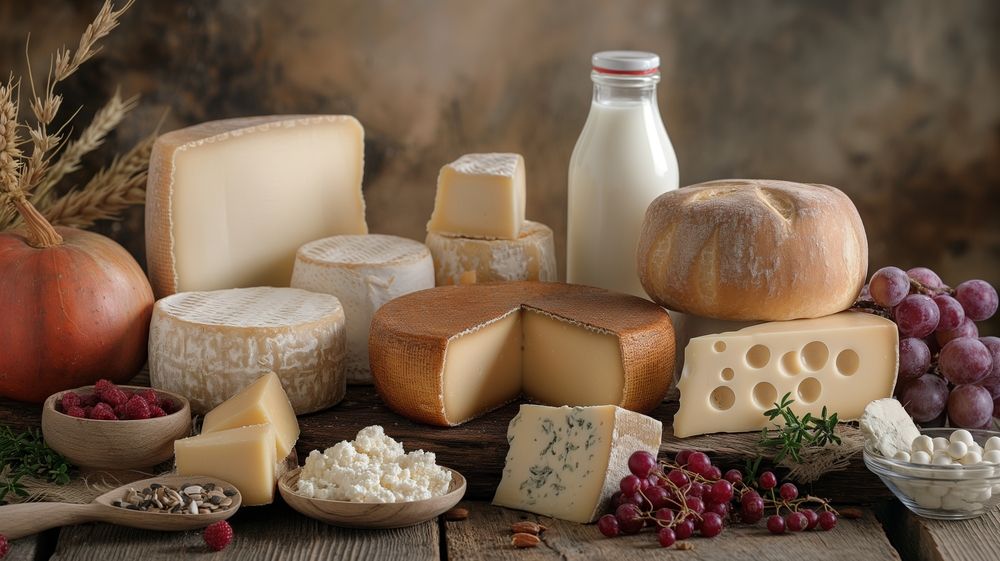
Growing up in the Midwest, it's probably no surprise that cheese is one of my favorite foods. It’s a love shared by many Americans, who consume an average of 42 pounds per person annually, according to Statista. The United States ranks among the top cheese-producing countries globally, with Wisconsin, California, and Idaho leading the way.
Although cheese is often praised as a nutritious dairy food, some people caution against it because of its saturated fat and sodium content. With over 1,500 types of cheese available, nutritional profiles can vary widely. Let’s take a closer look at the health benefits of cheese and explore eight of the healthiest options to consider for your diet.
Is Cheese Healthy?
Yes, cheese is a nutrient-dense dairy food that can be a valuable part of a balanced diet. It offers high-quality protein, calcium, potassium, magnesium, and B vitamins. Certain varieties, especially those aged but not pasteurized afterward, also contain beneficial probiotics that support digestive and overall health. Swiss, Provolone, Gouda, Cheddar, Edam, and cottage cheese are common probiotic-rich options, according to the Harvard School of Public Health.
However, moderation is essential. While cheese has many nutritional benefits, full-fat types can be high in saturated fat. The American Heart Association recommends that saturated fat make up no more than 6% of daily calories—about 13.5 grams on a 2,000-calorie diet. With an ounce of Cheddar containing around 6 grams of saturated fat, it may be best to limit intake to about one ounce daily.
How Much Cheese Should You Eat Per Day?
There’s no strict rule for cheese intake, but a daily serving is a good guideline. A typical serving is ¼ cup of shredded cheese, one ounce of hard cheese, or ½ cup of cottage cheese. Since cheese can contribute to your saturated fat intake, balance it with lean proteins and other foods low in saturated fat. When possible, opt for lower-fat versions of your favorite cheeses to help stay within recommended saturated fat limits.
The Healthiest Cheese Varieties To Add to Your Diet
Consider adding these eight cheeses to your shopping list for a healthy diet:
- Mozzarella (Part-Skim)
- Low-Fat (2%) Cottage Cheese
- Feta
- Swiss Cheese
- Parmesan
- Goat Cheese
- Ricotta (Part-Skim)
- Aged Cheddar
Mozzarella (Part-skim)

Nutrition (Per 1 oz serving):
- Calories: 83
- Fat: 5.7 g (Saturated Fat: 3.3 g)
- Sodium: 196 mg
- Carbs: 1.2 g (Fiber: 0 g, Sugar: 0 g)
- Protein: 6.6 g
With nearly half its weight made up of water, mozzarella is a great choice for those looking to cut back on calories, saturated fat, and sodium compared to other denser cheeses. This high water content keeps mozzarella lighter while still offering protein and flavor. Enjoy it in Italian dishes or keep single-serve mozzarella sticks on hand for a quick, protein-rich snack.
Low-fat (2%) Cottage Cheese
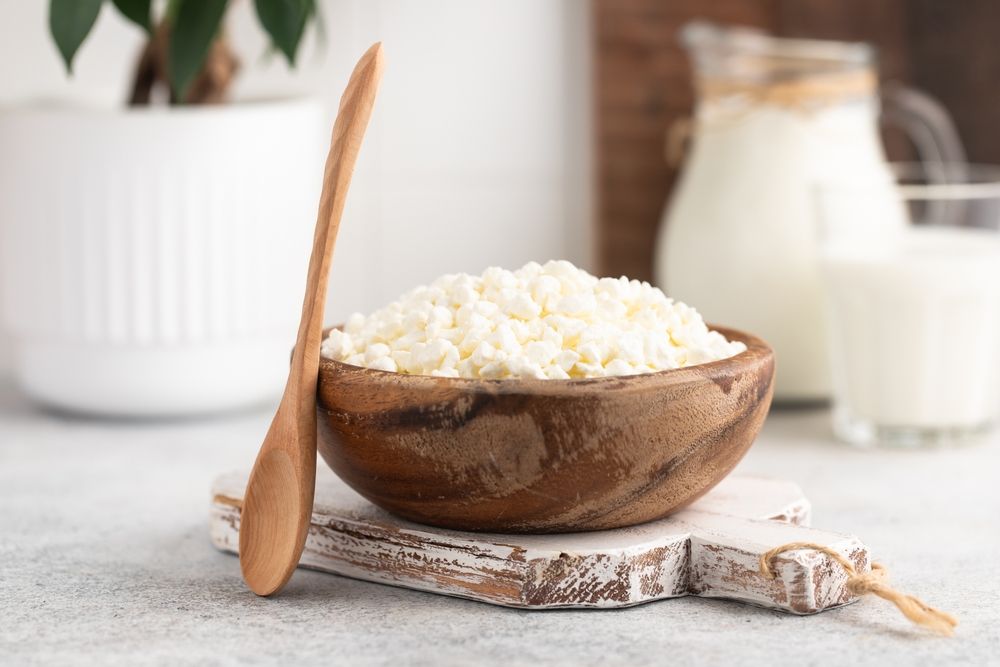
Nutrition (Per ½ cup serving):
- Calories: 90
- Fat: 2 g (Saturated Fat: 1.3 g)
- Sodium: 353 mg
- Carbs: 4.5 g (Fiber: 0 g, Sugar: 0 g)
- Protein: 12 g
Cottage cheese stands out as a high-protein, low-fat cheese option, making it a popular choice for those focused on nutrition. Produced by fermenting milk and removing the whey, it contains mostly casein, a slow-digesting protein. With its mild flavor and versatility, cottage cheese can easily be used in various dishes. Beyond being rich in calcium, it also provides leucine, an essential amino acid for building and maintaining muscle mass. Try cottage cheese as a high-protein alternative to ricotta in Italian dishes, or blend it into smoothies, pancakes, waffles, or salads for a protein boost.
Feta
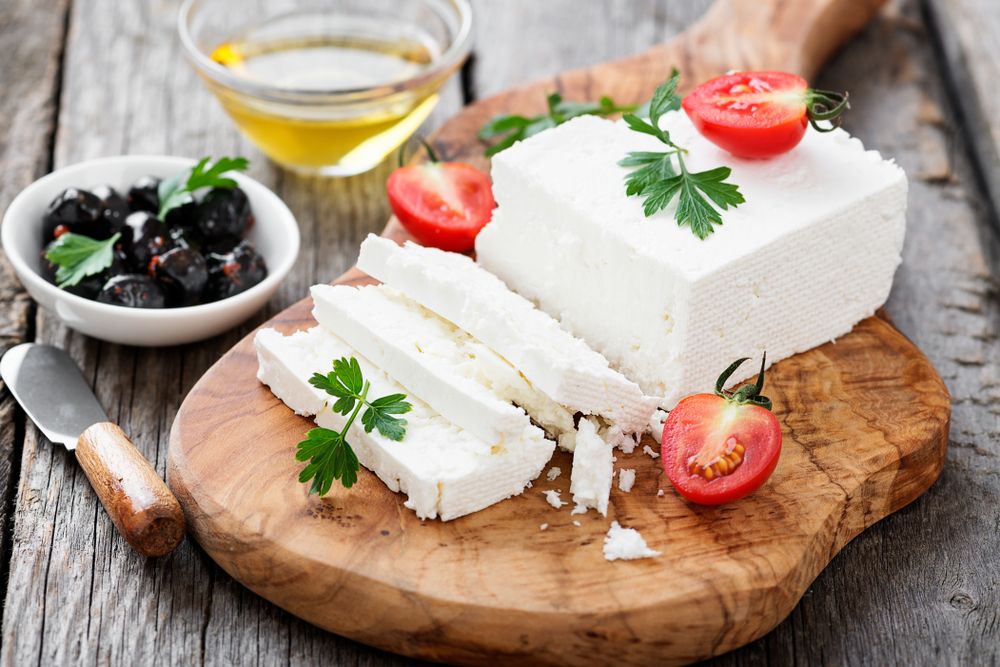
Nutrition (Per 1 oz serving):
- Calories: 76
- Fat: 5.3 g (Saturated Fat: 3 g)
- Sodium: 288 mg
- Carbs: 1.6 g (Fiber: 0 g, Sugar: 0 g)
- Protein: 5.5 g
Feta, typically made from sheep or goat's milk, is a salty cheese stored in brine, giving it a higher salt content than many other cheeses. It earns a spot among the healthiest cheeses for its lower calorie and saturated fat content. Its bold flavor means a small amount can go a long way in enhancing dishes. Enjoy feta crumbled over salads, mixed into scrambled eggs, or sprinkled on roasted vegetables for a burst of flavor.
Swiss Cheese

Nutrition (Per 1 oz serving):
- Calories: 76
- Fat: 5.3 g (Saturated Fat: 3 g)
- Sodium: 288 mg
- Carbs: 1.6 g (Fiber: 0 g, Sugar: 0 g)
- Protein: 5.5 g
Swiss cheese is a nutrient-rich choice, known for being high in protein and particularly rich in vitamin B12, as well as vitamin A—both essential for immune health and eye function. The characteristic holes in Swiss cheese form during aging as carbon dioxide is released; larger holes typically mean a stronger flavor. Swiss cheese is a tasty addition to salads, a flavorful topping for chili, or a savory layer on a lean turkey burger.
Parmesan (Grated)
Nutrition (Per 1 oz serving):
- Calories: 117
- Fat: 5.3 g (Saturated Fat: 4.3 g)
- Sodium: 490 mg
- Carbs: 3.4 g (Fiber: 0 g, Sugar: 0 g)
- Protein: 8.2 g
This classic Italian hard cheese is a staple in pasta and other Italian dishes. While Parmesan is higher in sodium, it’s rich in protein and has moderate saturated fat, making it a solid choice among healthier cheeses. For those who are lactose intolerant, Parmesan is lower in lactose than most cheeses, so small amounts may be easier to digest. Sprinkle freshly grated Parmigiano Reggiano over roasted vegetables, soups, stews, or pasta dishes for the best flavor—opting for freshly grated over pre-packaged varieties for a purer, richer taste.
Goat
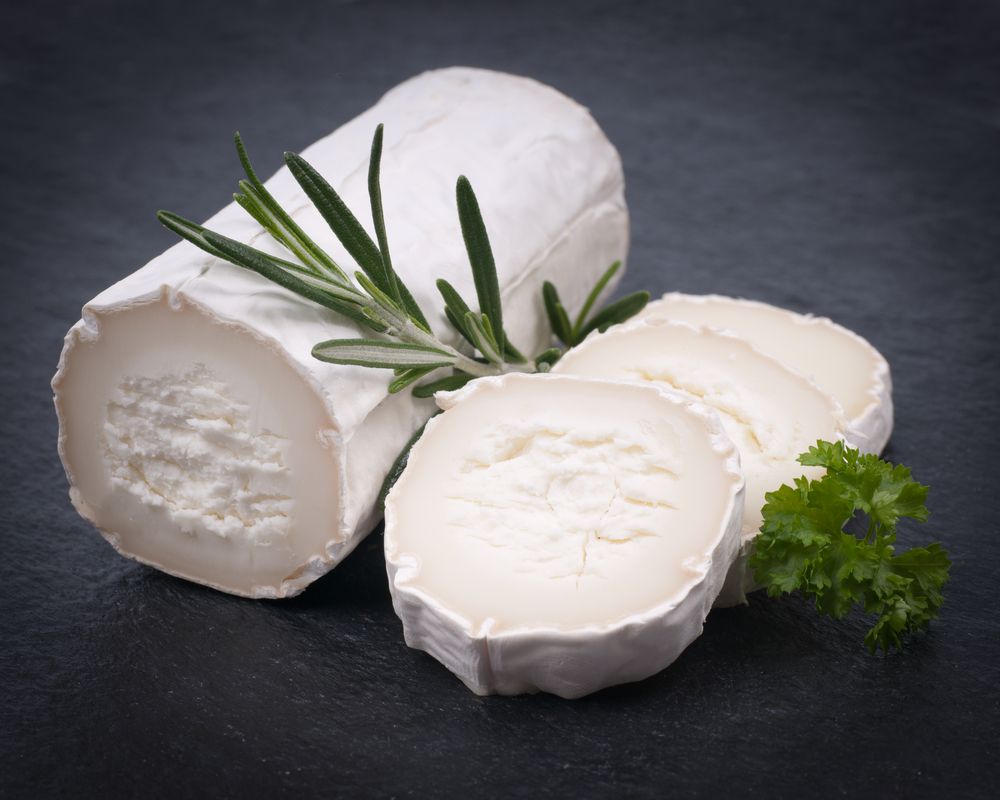
Nutrition (Per 1 oz serving):
- Calories: 103
- Fat: 8.4 g (Saturated Fat: 5.8 g)
- Sodium: 118 mg
- Carbs: 0 g (Fiber: 0 g, Sugar: 0 g)
- Protein: 6.1 g
Goat cheese, also known as chèvre, offers six grams of protein and key nutrients like calcium and vitamin A, along with probiotics that support gut health. With lower lactose levels than cow’s milk cheese, it’s easier on digestion, making it a great option for those with lactose sensitivities. Add goat cheese to salads, spread it on whole-grain toast, or melt it into pasta dishes for a creamy, tangy boost of flavor and nutrition.
Ricotta (Part-Skim)
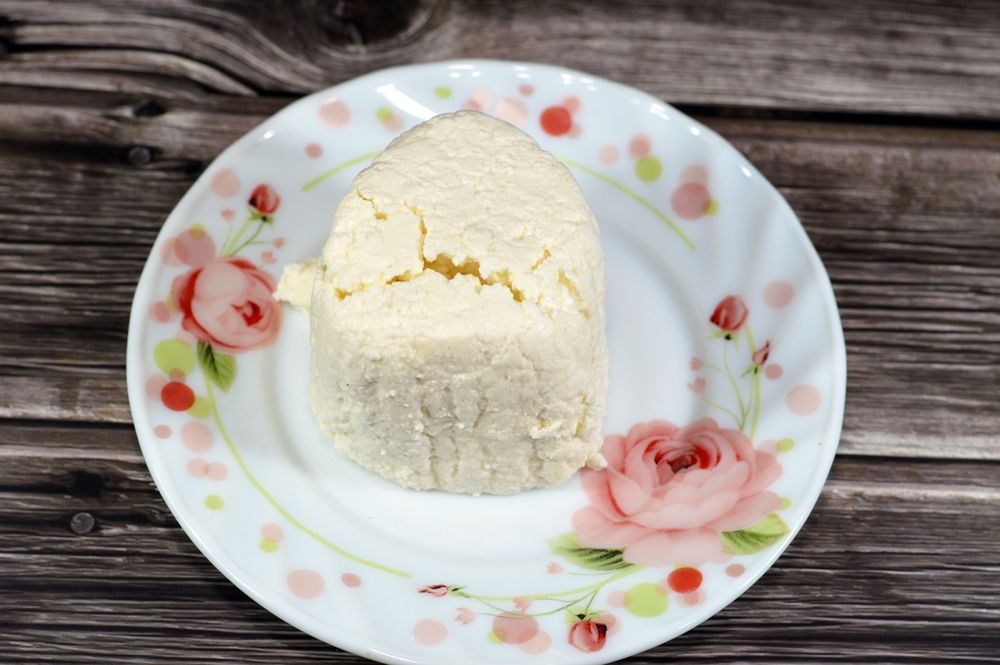
Nutrition (Per 1 oz serving):
- Calories: 164
- Fat: 2.2 g (Saturated Fat: 1.4 g)
- Sodium: 28 mg
- Carbs: 1.4 g (Fiber: 0 g, Sugar: 0 g)
- Protein: 3.2 g
Ricotta’s high water content keeps it lower in calories, fat, and sodium than many other cheeses. It contains more whey protein, which digests quickly, as opposed to casein. Rich in calcium, vitamin A, B vitamins, and potassium, ricotta’s mild flavor makes it versatile for both sweet and savory dishes. Try it spread on whole-grain toast with fresh berries, as a sandwich spread, or in your favorite pasta recipes.
Aged Cheddar
Nutrition (Per 1 oz serving):
- Calories: 115
- Fat: 9.5 g (Saturated Fat: 5.4 g)
- Sodium: 180 mg
- Carbs: 0 g (Fiber: 0 g, Sugar: 0 g)
- Protein: 6.8 g
Sharp or aged cheddar is lower in lactose, making it easier to digest for those with lactose sensitivity, as the aging process reduces lactose content. It’s also rich in vitamin K2, which is essential for bone health, and contains probiotics that support digestive health and the immune system. Try shredded cheddar in salads, sprinkled over soups or stews, mixed into whole-grain salads, or paired with sliced apples or pears for a balanced snack.

